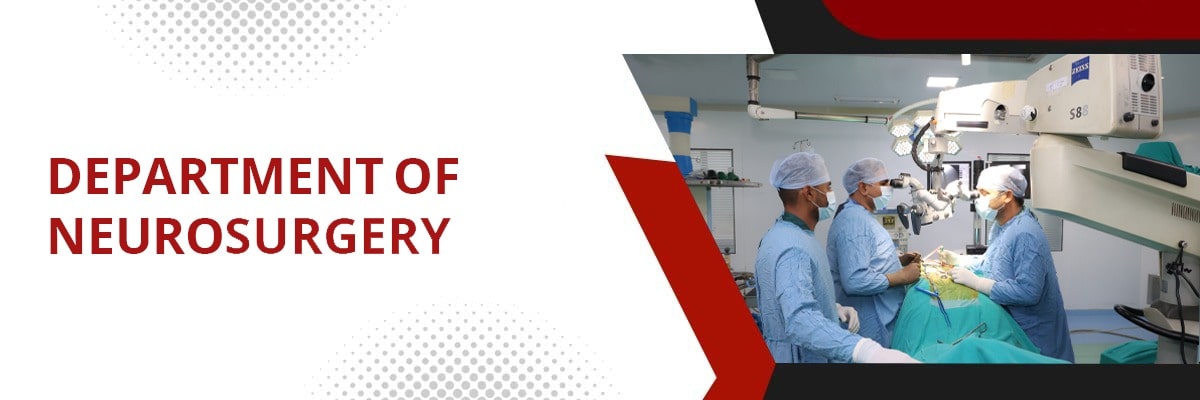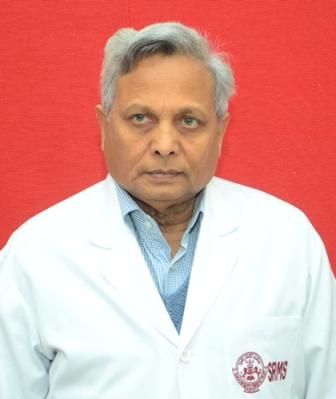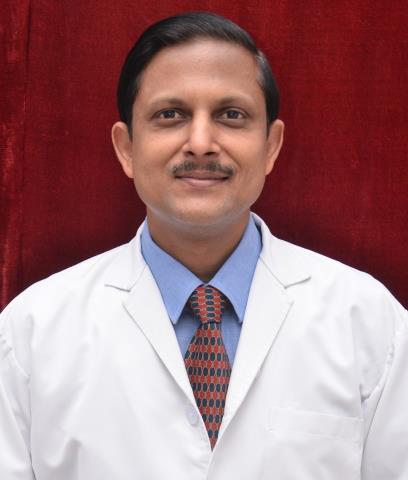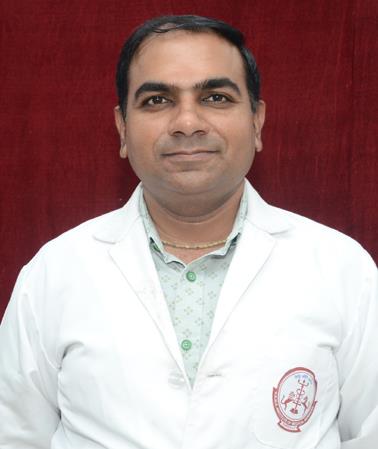
About
The Department of Neurosurgery constitutes the largest specialty division for neurological surgery in the Rohilkhand region, and is the most reputed of its kind in Western Uttar Pradesh. It is the main tertiary level center of the region for neurotrauma and neurosurgical maladies. The philosophy of working in unison with other specialty divisions of Neuromedicine, General surgery, Orthopaedics, Radiodiagnosis, Otorhinology and Physical medicine to offer multidisciplinary approach to problem solving, lies at the core of the department's work ethos. The department handles all kinds of trauma cases, cerebrovascular accidents, tumors, spinal deformities/ lesions and pediatric neurological diseases. Trans sphenoidal endoscopic surgery, minimally invasive spine surgery for pituitary tumor, cranial endoscopic surgery, intervention for aneurysm, multi-level spinal surgery are example of few high end surgeries that are being routinely done here.
Services & Facilities
Welcome to the Neuro Surgery Department at SRMS Hospital in Bareilly. Our dedicated team of highly skilled neurosurgeons and medical professionals are committed to providing top-notch care for patients with neurological disorders. We offer a wide range of services and facilities to ensure the best possible outcomes for our patients.
1. Advanced Neurosurgical Procedures: Our experienced neurosurgeons perform a variety of complex procedures, including but not limited to:
- Brain Tumor Surgery
- Spinal Cord Surgery
- Cerebrovascular Surgery (aneurysm repair, AVM treatment)
- Peripheral Nerve Surgery
- Stereotactic Procedures
- Minimally Invasive Neurosurgery
2. Comprehensive Neurological Care: We provide comprehensive care for various neurological conditions, such as:
- Brain Tumors
- Stroke
- Spinal Disorders (herniated discs, spinal stenosis)
- Epilepsy
- Movement Disorders (Parkinson’s disease, essential tremor)
- Neurotrauma (head injuries, spine injuries)
3. State-of-the-Art Facilities: Our hospital is equipped with cutting-edge technology to support neurosurgical procedures, including:
- Advanced Neuroimaging (MRI, CT, PET-CT)
- Intraoperative Imaging Systems
- Neuronavigation Systems
- High-Definition Surgical Microscopes
- Advanced Neurophysiological Monitoring
4. Minimally Invasive Surgery: We specialize in minimally invasive techniques, which result in smaller incisions, reduced pain, shorter hospital stays, and faster recovery. Procedures include endoscopic surgery and robotic-assisted surgery.
5. Intensive Care Unit (ICU): We have a dedicated Neuro ICU equipped with the latest monitoring and life support systems to provide specialized postoperative care for our neurosurgery patients.
6. Rehabilitation Services: Our hospital offers comprehensive rehabilitation services, including physiotherapy, occupational therapy, and speech therapy, to aid in the recovery process after neurosurgery.
7. Multidisciplinary Approach: Our neurosurgery team collaborates with experts from various specialties such as neurology, radiology, anesthesiology, and oncology to ensure holistic patient care.
8. Patient-Centric Care: We prioritize patient comfort and well-being, offering personalized care plans and a supportive environment throughout the treatment journey.
9. Research and Education: We are dedicated to advancing the field of neurosurgery through research and education. Our team actively participates in research projects and contributes to medical literature.
Treatments
Brain Tumor Surgery: Surgical removal of brain tumors, which can be benign or malignant. This involves techniques to access and remove the tumor while minimizing damage to healthy brain tissue.
Spinal Surgery: Procedures to treat various spinal conditions such as herniated discs, spinal stenosis, and spinal fractures. Surgeries may involve decompression, fusion, or minimally invasive techniques.
Cerebrovascular Surgery: Treatment of conditions affecting the blood vessels in the brain, such as aneurysms, arteriovenous malformations (AVMs), and vascular occlusions.
Functional Neurosurgery: Surgical interventions to address movement disorders like Parkinson’s disease, essential tremor, and dystonia. Deep brain stimulation (DBS) is a common technique used for these conditions.
Peripheral Nerve Surgery: Repair of damaged or compressed peripheral nerves, often due to conditions like carpal tunnel syndrome or peripheral nerve injuries.
Epilepsy Surgery: Surgical options for patients with drug-resistant epilepsy, including procedures to remove the part of the brain responsible for seizures.
Pediatric Neurosurgery: Specialized care for neurological conditions in children, including congenital malformations, hydrocephalus, and brain or spinal cord tumors.
Pain Management: Neurosurgical procedures to address chronic pain, such as spinal cord stimulators and other neuromodulation techniques.
Trauma Surgery: Emergency surgical interventions for head and spinal injuries caused by accidents or trauma.
Neuroendoscopy: Minimally invasive procedures using endoscopes to access and treat conditions within the brain and spinal cord.
Neuro-oncology: Comprehensive management of brain and spinal cord tumors, including surgery, radiation therapy, and chemotherapy.










